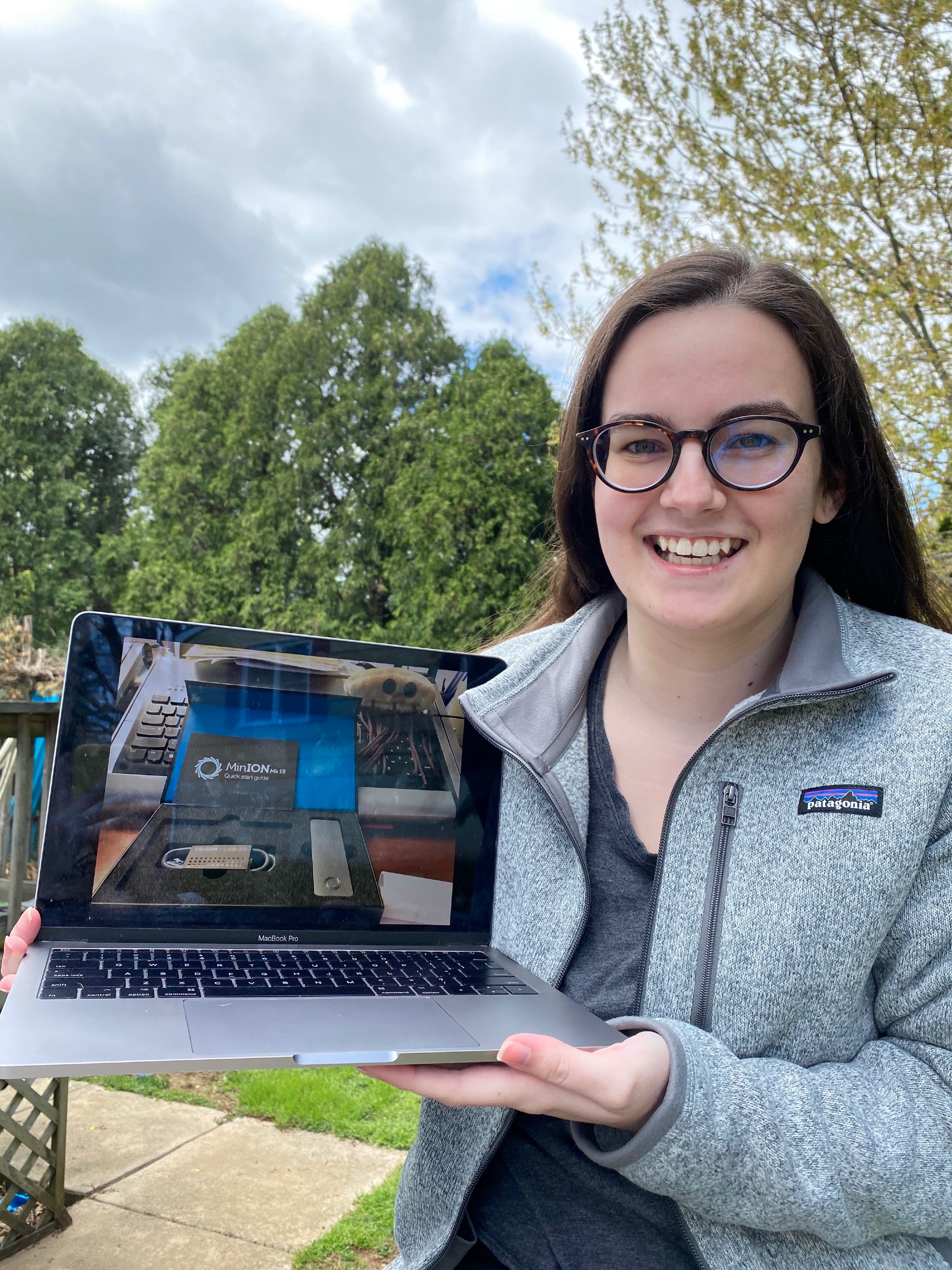I had the opportunity to speak to Emily Winstead concerning her research with Dr. Crozier on microbial source tracking using DNA sequencing.

Can you describe what your research project is about?
My research falls into the field of microbial source tracking – which are methods used to identify sources of fecal contamination in water sample. Our current project is to try to figure out how to use a new DNA sequencing device, the MinION to sequence DNA from environmental samples with the hopes of identifying the source of contamination.
What made you decide to pursue your topic?
There are so, so, so many organisms that we can’t see (yay microbiology!), and I think that it’s fascinating that there are molecular ways to identify them. In addition, water quality is an issue that affects public health. Microbial source tracking, and other techniques can be implemented to survey water quality to better serve communities.
Why did you decide to do research?
As a senior in high school, I found out about the Research Fellows Program completely by accident, and thought it sounded so cool to be able to do research from the time I walked onto campus as a freshman until I graduate. I have had the opportunity to learn how to do cutting-edge science, all while learning leadership skills, and gaining confidence as a scientist. These skills will be invaluable to me as I graduate from Roanoke and continue my research journey elsewhere.
How has your experience with your research advisor been?
I’ve worked with Dr. Crozier since my sophomore year, and he’s amazing! Sometimes the easiest parts of research (I’m looking at you PCR) end up being the most challenging, which can be incredibly frustrating. Dr. Crozier has always been supportive, and is always helping me troubleshoot. Also, he’s always there whenever I have a problem, or have needed life/career/what am I doing after Roanoke advice, so it’s definitely been an amazing experience.
What has been your favorite or most interesting part of your research project so far?
One of the weirdest parts of my research project has been extracting DNA from horse manure. But the actual weird part is that to ensure that we break open the cells enough to extract, we actually have to heat the feces in a water bath for thirty minutes. So a couple of times a semester, the second floor of Life Science might smell like hot horse manure, and that definitely is our lab… so my bad…
Another interesting thing is that the device that we use is called the MinION, so we definitely keep Despicable Me Minion stickers in our lab, and I stick them on random notebooks, sample boxes, pipette tip boxes, just random things…
What would you say to current and incoming students interested in doing research?
One of the unique things about me, is that I’ve had the experience of working in a number of different research fields, both here at Roanoke, and elsewhere. I’ve worked in the humanities, biochemistry labs, clinical research, and in microbiology, and the biggest thing I can recommend is to find something you’re passionate about. Find a topic that interests you, even if it’s not at all what you expect, and go for it! It’s also super important to have a support system in place, whether that’s a mentor, or other research students who can support you.